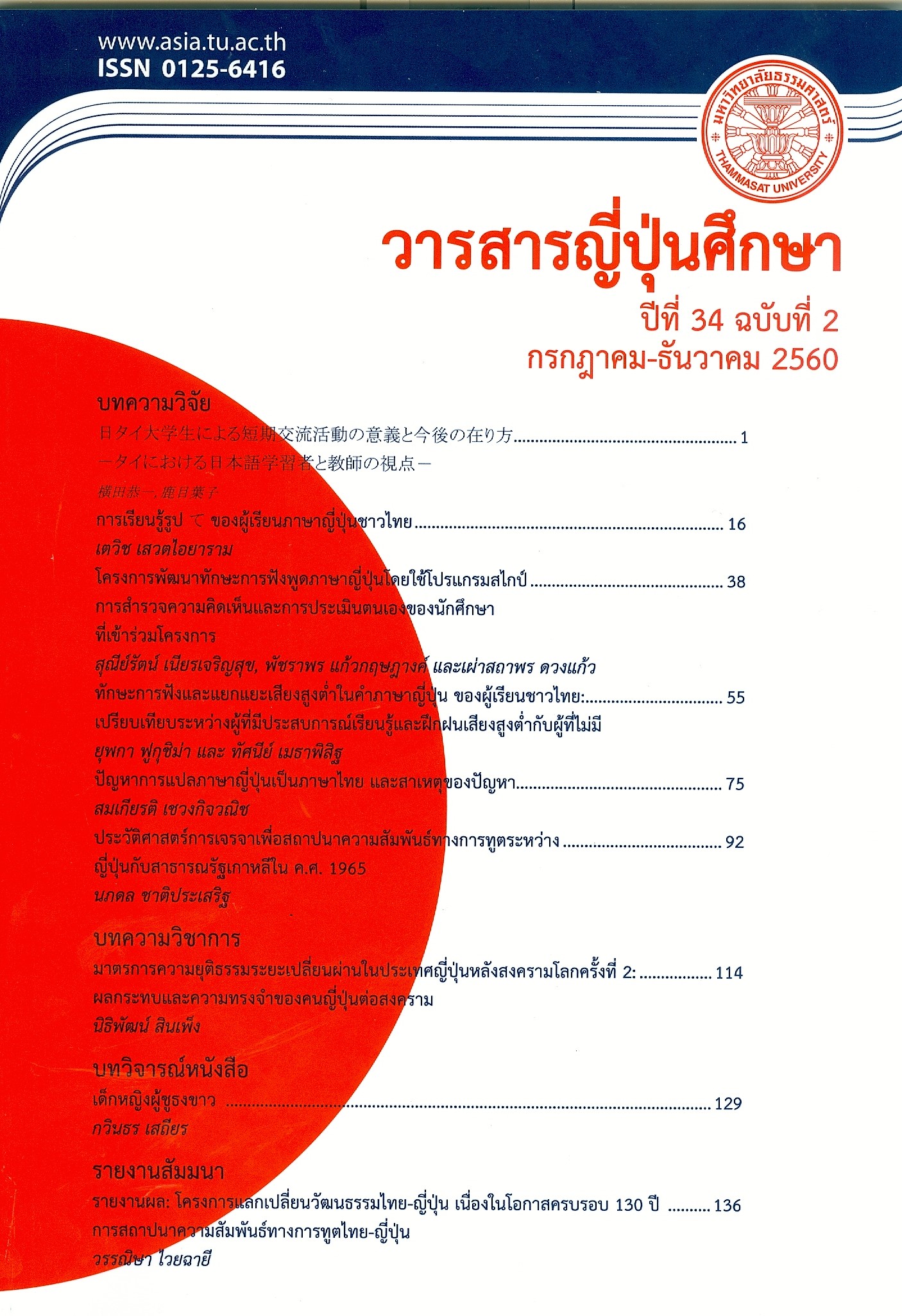Significance and Future Vision of Short-term Exchange Programs between Students of Japanese and Thai Universities: From the Perspective of Learners and Teachers in Thailand
Keywords:
short-term exchange, learners of Japanese, Japanese university students, colloborative learning, learning and friendshipAbstract
This study examined how learners and teachers of Japanese in a Thai university
perceived the short-term cultural exchange programs conducted by accepting students from
Japanese universities and what programs should be conducted in future. We carried out a
questionnaire survey for the learners and teachers of Japanese asking for their opinions on
their experiences with the three exchange programs which differed from each other by presence
or absence of preparation, duration of the program, and type of activities. The results showed
that the learners perceived the programs beneficial because they believed that they succeeded
in 1) practicing the Japanese language, 2) gaining knowledge and raw information about Japan
and the language, 3) building confidence in Japanese, 4) raising awareness of their Japanese
proficiency, 5) increasing motivation and willingness to learn, and 6) fostering a new friendship
through interactions with native Japanese speakers of the same age group. However, it was
revealed that teachers did not always perceive the projects effective due to inadequate prior
consultation and preparation of the program between participating universities and insufficient
time for the participants to perform activities as well as the lack of learner-centered activities.
Findings suggested conducting a program in which both learners of Japanese and Japanese
university students perceive themselves as a provider and a receiver of knowledge and experiences
and engage in common activities collaboratively in order not only to maximize their own
learning and that of their peers but also to foster friendships.




